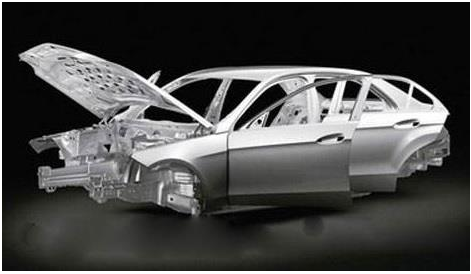
The global automotive parts magnesium die casting market is expected to register a CAGR of 9.55% during the forecast period.
The market studied is primarily driven by the expanding automotive market, increasing penetration of magnesium die casting parts in industrial machinery, growing electric mobility, and the employment of magnesium cast for powertrain and housing parts of automobiles.
The implementation of stringent emission norms by several countries and regions is propelling the growth of the market. Reducing the vehicle weight is an important step to cut the emissions and, in turn, drives the original equipment manufacturers to opt for lightweight materials, such as magnesium and carbon fiber reinforced plastic, to manufacture vehicle components.
The increasing investment in innovation and automation, etc., is propelling the growth of the market studied. The ongoing research and development activities are leading to the discovery of new magnesium alloys and efficient manufacturing techniques. For instance, the Indian Institute of Technology, Madras, the US Army Research Laboratory, and the University of North Texas developed a new magnesium alloy that can replace aluminum and steel alloys in the automotive industry and increase the fuel efficiency of vehicles.
However, the growth of the market can be impacted by the high cost of magnesium and associated manufacturing processes and the ongoing impact of the COVID-19 outbreak.
Key Market Trends
Increased Application of Magnesium Die Casting in Body Parts
Key body structure applications, such as floor rails, shock towers, and pillars, are now being manufactured, using high-pressure non-ferrous castings. The use of magnesium in automotive body parts was limited earlier, but it has been observed to be expanding significantly since 2013. However, GM has been employing a single-piece die-cast roof frame made of magnesium, since the introduction of C-5 Corvette in 1997.
SUVs and Ford F-150 trucks make use of magnesium castings for radiator support, and Dodge few vehicle models use a one-piece magnesium front-of-dash magnesium die casting part. The first magnesium die-cast closure to ever meet 55 mph rear crash requirements is used in liftgate inner panel, and the part has been used initially in 2010 Lincoln MKT.
In Europe, for body panel applications, the German auto giants, Volkswagen and Mercedes, have employed thin-wall magnesium die castings.
Thin-wall die castings, such as closure inners, can often offset the material cost penalty of magnesium, over steel sheet metal construction, due to part consolidation. Thus, depending on the application and the area of employment, magnesium die casting components are gaining popularity within the body part segment, and their usage is expected to increase during the forecast period.
Asia-Pacific Projected to Dominate the Market During the Forecast Period
The large-scale demand, domestic production, government initiatives, and availability of resources are the main drivers for the growth of the Automotive Parts Magnesium Die Casting Market in the Asia-Pacific region.
China is one of the major producers of die casting parts and accounts for more than 64.90% of the regional (Asia-Pacific) die casting market share. The metal casting industry in China has more than 26,000 facilities, out of which 8,000 facilities produce non-ferrous castings. China produces over 49.3 million metric tons of castings. The advanced and efficient automatic die casting machines supported the demand for metal die castings in the country. Industrial restructuring, the upgrade of existing players, the development of the latest technologies, and improved production rates have contributed to the Chinese high-pressure die casting market’s growth. The Chinese magnesium die casting market experiences high demand from the automotive industry, which is rapidly growing at the international level. This is expected to drive the Chinese market’s growth over the forecast period.
On the other hand, the growing automobile industry, stabilizing industrial sector, consumer popularity for fuel-efficient vehicles, and latest advancements in die casting techniques are expected to drive the growth of the Japanese automotive part magnesium die casting market. All these factors are expected to drive the automotive part magnesium die casting market’s growth in the Asia-Pacific region.
Competitive Landscape
The global automotive parts magnesium die casting market is highly fragmented with many regional small- and medium-scale players across both developing and developed countries around the world.
Major recognized players, such as Georg Fischer Automotive, Ryobi Die Casting, Shiloh Industries, and Pace Industries, accounted for over 28% of the overall global market share.
These key players have focused their revenues on R&D to develop better production processes and alloys. This strategy may assist in the production of premium quality die-cast parts for the automotive industry. Key players have also expanded their reign globally by various mergers, expansions, partnerships, joint-ventures, and acquisitions.

 0086-750-5616188
0086-750-5616188 +86 13392089688
+86 13392089688 sales@zhongmei-tech.com
sales@zhongmei-tech.com













